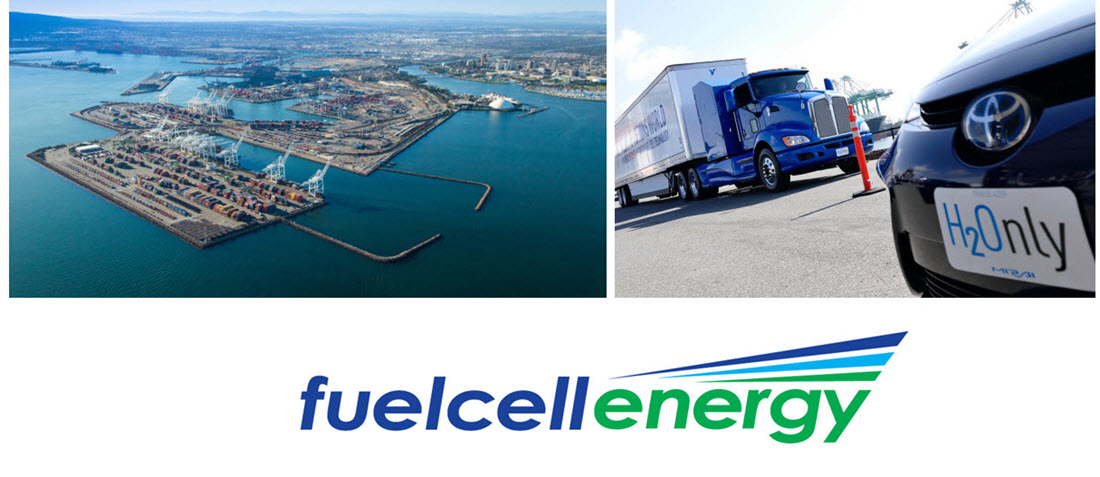
California Public Utilities Commission Reaffirms that the Use of Directed Biogas under the Bioenergy Market Adjusting Tariff (BioMAT) Program is Permissible
- FuelCell Energy’s First Full-Scale Commercial SureSource Hydrogen Plant Will Produce Clean Electricity, Hydrogen, and Hot Water
- Carbon Neutral 2.3MW Plant Will Completely Power the Toyota facilities at the Port in Long Beach and Export the Balance of the Electricity to the Southern California Grid
- Hydrogen Generation from the Plant will be Used to Power Toyota’s Zero-Emission Fuel Cell Trucks and Consumer Vehicles resulting in improved air quality in the community and lowering transportation emissions
- Supports Growth of Hydrogen Infrastructure and Fuel Cell Technology for both Clean-Energy and the Transportation Sectors
DANBURY, Conn.— Today, FuelCell Energy, Inc. (Nasdaq: FCEL), the global leader in fuel cell technology with its purpose being to utilize its proprietary, state-of-the-art fuel cell platforms to enable a world empowered by clean energy, announced that the California Public Utilities Commission (CPUC) has clarified and reinforced that the use of directed biogas is permissible under the Bioenergy Market Adjusting Tariff (BioMAT) program, rejecting arguments by Southern California Edison to the contrary, thus permitting the continued development of the Toyota Port of Long Beach FuelCell Energy SureSource Hydrogen project.
“Today marks the start of a powerful new chapter for FuelCell Energy, the hydrogen-powered transportation industry,” said Jason Few, President and CEO of FuelCell Energy. “California is leading in the way in the United States by establishing hydrogen generation and fueling infrastructure. In addition to supporting Toyota’s local operations, the hydrogen produced by our fuel cell will be used to power zero-emission fuel cell trucks and consumer vehicles, paving the way for the replacement of high-emission diesel trucks with hydrogen-powered trucks on a larger scale that will cleanly move products around the world.”
Additional background includes:
- Bioenergy Market Adjusting Tariff (BioMAT): This is a feed-in tariff program, which allows eligible plants to sell power to one of the state’s three investor-owned utilities at a fixed price, providing for the use of biogas in-state to reduce greenhouse gas emissions and improve overall air quality.
- Toyota Port of Long Beach Operations: Toyota’s 130-acre facility at the Port of Long Beach processes approximately 200,000 vehicles every year.
- Port of Long Beach FuelCell Energy Plant Characteristics: The plant will produce electricity, hydrogen, and water from directed biogas, part of which will be used to power local operations, fuel a new fleet of hydrogen cars and trucks and rinse off vehicles at the on-site car wash and enable the Port of Long Beach to achieve air quality compliance.
“For the Port of Long Beach, FuelCell Energy is delivering the energy future,” said Jason Few. “Beyond Southern California, new opportunities for the use of hydrogen-based power will penetrate the global transportation sector, creating new opportunities for FuelCell Energy to deliver on our purpose of enabling a world powered by clean energy.”
Source: FuelCell Energy
Read the most up to date Fuel Cell and Hydrogen Industry news at FuelCellsWorks




